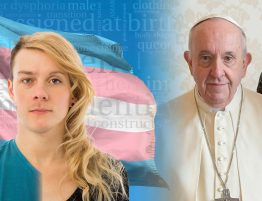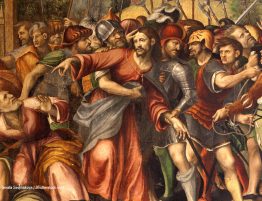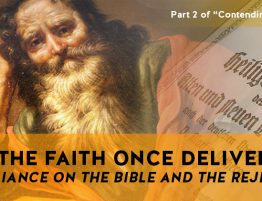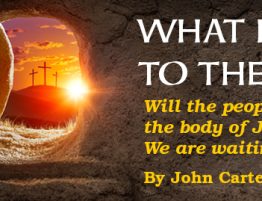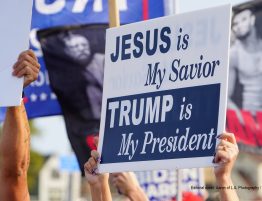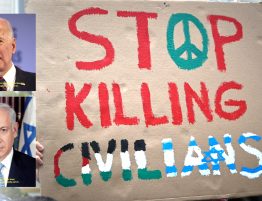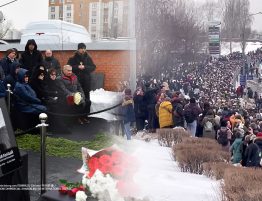John Carter and most of the Carter Report team are today on what is almost a ‘sacred journey.’ They’ve gone to Kokoda, the site of the first defeat of the Japanese Army in World War Two.
Australian soldiers were at one stage outnumbered 100 to one by the Japanese. But they won the battle. And the Seventh-day Adventist Church is largely responsible for this victory.
Wounded Australian soldiers had to be evacuated along a 60 mile (100 km) rough bush track called the Kokoda Trail. (Also known as the Kokoda Track). It was muddy, wet, narrow, humid, and slippery. It was so hilly it was the equivalent of climbing Mount Everest.
It took twelve soldiers about a week to carry the stretcher of one wounded soldier over this treacherous trail. And the Australian Army could hardly afford to send twelve men away from the front line each time a colleague was wounded.
That’s where the Seventh-day Adventist Church came in. Adventist missionaries had come to Kokoda a few years beforehand and many people in the area had become Adventists. This simple fact saved the day and turned the tide in the Second World War.
The army had to rely on local natives to take the wounded back along the 60-mile rugged track to hospital in Port Moresby. But cannibalism was still rife in Papua and New Guinea at that time. How did you know whether or not the stretcher bearers would take a wounded man five miles down the track and eat him?
But you could trust a Seventh-day Adventist! They wouldn’t eat anyone. And they were honest. If they said they would take a wounded soldier back to Port Moresby, you knew they would do it.
Australian soldiers and the Australian public honored these natives with the title “Fuzzy Wuzzy Angels.” (The Wikipedia article on the “Fuzzy Wuzzy Angels” fails to mention that they were mainly Seventh-day Adventists.)
The battle and the role of the Fuzzy Wuzzy Angels were remembered in the documentary Kokoda Front Line! – which won an Academy Award.
Kokoda and the Fuzzy Wuzzy Angels are etched into the collective memory of the Australian consciousness. Today 5000 Australians each year struggle on a memorial walk the length of the treacherous Kokoda Trail.
The memory of the Fuzzy Wuzzy Angels was even stronger when John Carter was a school boy. While 1300 miles (2000 km) away, young John had his own extraordinary encounter with Fuzzy Wuzzy Angels.
His mother had recently joined the Seventh-day Adventist Church. The family lived on the banks of the Brisbane River in Australia. Nearby was a ship repair business.
One day they saw a group of black men bring in a small ocean-going boat for repairs. They looked just like the Fuzzy Wuzzy Angels in the newspaper photos and the newsreels. Could they be? John’s mother took a blackboard and wrote “SDA” on it. She held it up for the black men to see. And they came running.
For day after day’ young John was enthralled by stories of these wonderful Fuzzy Wuzzy Angels – the people who helped save Australia from invasion in the Second World War.
It left an indelible impression on young John. And one suspects those precious days were vital for his decision to later become a Seventh-day Adventist preacher.
Today in Port Moresby, it is a scheduled rest day for the Carter Report evangelistic program. God made the human body so it needed a break one day in seven. Preachers can’t stop working on Sabbath – it’s the busiest day of the week for them. So they need to take another day off. John scheduled that there would be no Carter Report program today. Everyone on the team needs to recuperate from the incredible pressure.
So today most of the Carter Report team is relaxing in Kokoda. It is a day of awe for them, especially for the Australians. They are seeing the historic places where the Fuzzy Wuzzy Angels helped save Australia. And tomorrow they will return the favor. They will go back to Port Moresby to help save the people of Papua New Guinea.
——————————————-
PLEASE read the article "Urgent need for $100,000" listed in the column to the right.
REPORT WRITTEN Midday Monday August 6, 2012 (Port Moresby time). Sunday 7 p.m. California time.
John Carter and most of the Carter Report team are today on what is almost a ‘sacred journey.’ They’ve gone to Kokoda, the site of the first defeat of the Japanese Army in World War Two.
Australian soldiers were at one stage outnumbered 100 to one by the Japanese. But they won the battle. And the Seventh-day Adventist Church is largely responsible for this victory.
Wounded Australian soldiers had to be evacuated along a 60 mile (100 km) rough bush track called the Kokoda Trail. (Also known as the Kokoda Track). It was muddy, wet, narrow, humid, and slippery. It was so hilly it was the equivalent of climbing Mount Everest.
It took twelve soldiers about a week to carry the stretcher of one wounded soldier over this treacherous trail. And the Australian Army could hardly afford to send twelve men away from the front line each time a colleague was wounded.
That’s where the Seventh-day Adventist Church came in. Adventist missionaries had come to Kokoda a few years beforehand and many people in the area had become Adventists. This simple fact saved the day and turned the tide in the Second World War.
The army had to rely on local natives to take the wounded back along the 60-mile rugged track to hospital in Port Moresby. But cannibalism was still rife in Papua and New Guinea at that time. How did you know whether or not the stretcher bearers would take a wounded man five miles down the track and eat him?
But you could trust a Seventh-day Adventist! They wouldn’t eat anyone. And they were honest. If they said they would take a wounded soldier back to Port Moresby, you knew they would do it.
Australian soldiers and the Australian public honored these natives with the title “Fuzzy Wuzzy Angels.” (The Wikipedia article on the “Fuzzy Wuzzy Angels” fails to mention that they were mainly Seventh-day Adventists.)
The battle and the role of the Fuzzy Wuzzy Angels were remembered in the documentary Kokoda Front Line! – which won an Academy Award.
Kokoda and the Fuzzy Wuzzy Angels are etched into the collective memory of the Australian consciousness. Today 5000 Australians each year struggle on a memorial walk the length of the treacherous Kokoda Trail.
The memory of the Fuzzy Wuzzy Angels was even stronger when John Carter was a school boy. While 1300 miles (2000 km) away, young John had his own extraordinary encounter with Fuzzy Wuzzy Angels.
His mother had recently joined the Seventh-day Adventist Church. The family lived on the banks of the Brisbane River in Australia. Nearby was a ship repair business.
One day they saw a group of black men bring in a small ocean-going boat for repairs. They looked just like the Fuzzy Wuzzy Angels in the newspaper photos and the newsreels. Could they be? John’s mother took a blackboard and wrote “SDA” on it. She held it up for the black men to see. And they came running.
For day after day’ young John was enthralled by stories of these wonderful Fuzzy Wuzzy Angels – the people who helped save Australia from invasion in the Second World War.
It left an indelible impression on young John. And one suspects those precious days were vital for his decision to later become a Seventh-day Adventist preacher.
Today in Port Moresby, it is a scheduled rest day for the Carter Report evangelistic program. God made the human body so it needed a break one day in seven. Preachers can’t stop working on Sabbath – it’s the busiest day of the week for them. So they need to take another day off. John scheduled that there would be no Carter Report program today. Everyone on the team needs to recuperate from the incredible pressure.
So today most of the Carter Report team is relaxing in Kokoda. It is a day of awe for them, especially for the Australians. They are seeing the historic places where the Fuzzy Wuzzy Angels helped save Australia. And tomorrow they will return the favor. They will go back to Port Moresby to help save the people of Papua New Guinea.
——————————————-
PLEASE read the article "Urgent need for $100,000" listed in the column to the right.
REPORT WRITTEN Midday Monday August 6, 2012 (Port Moresby time). Sunday 7 p.m. California time.



